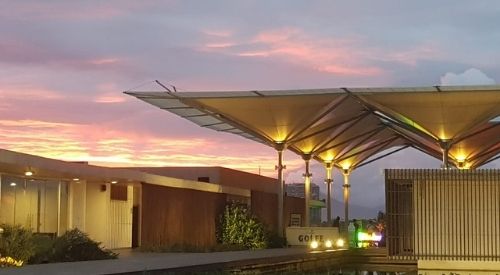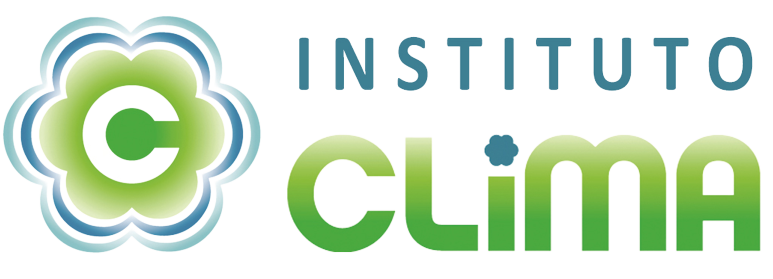The Climate Institute for Sustainable Development

The Climate Institute is a non-profit civil association; which aims to contribute to the conservation, preservation, recovery and sustainable management of the environment, natural resources, cultural goods and values, social inclusion of the population at risk, contributing to sustainable development.
Located in the west of the city of Rio de Janeiro, in the neighborhood of Barra da Tijuca – a place that has developed its socio-environmental activities to date.
The Climate Institute comes together with the Sustainability Tripod (a concept known worldwide as: “Triple Bottom Line”) – which governs that the social, environmental and economic aspects must be in total harmony, uniting the three Ps: People, Planet, profit
– Our Mission:
The main mission of Climate Institute is to provide means and resources that meet environmental protection actions and activities, in addition to the urban development of the region in which sustainable development projects, programs and actions are inserted.
We aim at and are aligned with the concepts of the green economy – “Green Economy” (economy that aims at the result in favor of improving the well-being of humanity and social equality, reducing environmental risks and ecological scarcity) and the new green agreement – “Green New Deal” (a set of economic proposals that aim to contain the so-called “triple crisis”. The creation of the term was inspired by the New Deal – a group of economic proposals implemented by the President of the United States, Franklin D.
– Main goals :
A) Contribute to the defense and protection of the environment and natural resources, preserving ecologically important areas. Also conserving biodiversity and encouraging the creation of conservation units;
B) Promote social inclusion and the full exercise of citizenship through socio-environmental education (the key to change in current and future generations), aiming to improve the quality of life of communities;
C) Promote sustainable development, through the implementation of projects that solve economic, social and environmental problems (Sustainability Tripod).
About Business Social Ethics

Ethics and corporate social responsibility today.
For some years now, the vision of only business profit has been an outdated and defeated vision. A company that seeks profit above all else, without thinking about the quality of its products, services and employees, will not survive. What happens is that, in addition to being successful and up to date with its taxes, the winning company of the 21st century must be proactive and be in search of discretionary responsibility. Discretion is that act by which the Public Administration, explicitly or implicitly, performs administrative acts with freedom of choice according to its convenience, opportunity and content.
In addition, problems such as high corruption – mainly in Brazil – and the obscurity of negotiations led companies to seek the vision of the “Desnuda” company – that is, the one that is free from any deceitful act, as it aims at transparency, leadership and sustainability.
The rapidity of modern times generates several effects; as the “speed effect”. Humanity plunges into such a profound day-to-day of tasks, at an enormous speed; in which one must have the maximum of discernment, and prioritize what is most necessary. However, even with all the responsibilities, selfishness should not override the principle of thinking about the other, in being properly ethical.
According to problems in our environment (such as: climate change, air pollution, lack of water, improper disposal of garbage in the streets, seas, lakes and ponds), the consumer has become more demanding. Still, movements such as ECO 92, the Global Forum, and various laws (the ISOSs) and levels show the birth and evidence of the new consumer.
A company can get great products and great services, but if it’s not proactive, it’s not fitting at the top of the discretionary responsibility pyramid. This socio-business responsibility refers from A to Z in all its actions and commitment, being at the level of excellence in all its steps. The company is solid, prosperous, and it also has a healthy environment, its employees are happy, it has an agenda of social and environmental actions; and its products and services are highly rated by its consumers.
Several new concepts were born, such as IBASE, idealized by Herbert de Souza, or Betinho. Betinho believes that it is useless for a company to be prosperous, if the reality around it is sad because the people around it are not healthy. What is unhealthy contaminates everything around you.
We have some examples of Brazilian companies that fit the vision of discretionary responsibility – they are proactive; although not many.
Profit is the consequence of a well-run business. But being well-managed doesn’t mean being proactive. Many bankruptcies stem from the lack of vision and sensitivity of business ethics.
New times have arrived. At this moment, sharing, not getting caught up in speed, holding hands with others, being active in social programs and actions – this is certainly the attitude of the company that is ahead. The latter will have to maintain its vision, in times of plenty and scarcity – therein lies the example of true ethics.
Partnerships


















